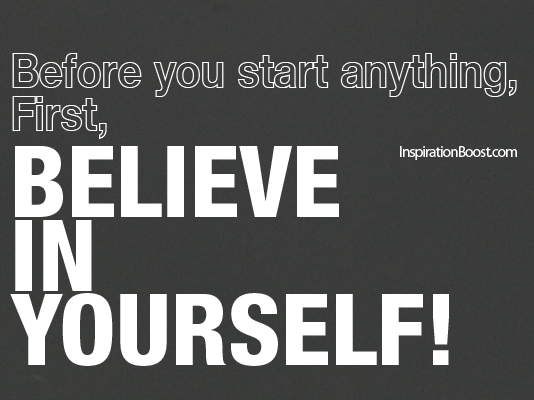In Christian society today, one thing that is most desired by the Church is inspiration. We want to be inspired in our walk with Christ, to be encouraged to keep going, and challenged to be better. In fact, inspiration, although there are a number of different ways we use the word, is extremely necessary for our faith.
However, over the number of weeks, I've noticed something increasingly dangerous about this. On social media sites, we often like to share motivational pictures or quotes that we think are nice. This too is good, but it's not necessarily this that is particularly bothersome. The danger in our "inspiration" these days is what we choose to inspire us.
You see, many "motivational" quotes that we use actually encourage us - often without our realizing it - to not rely on God. Statements such as "You're strong enough for this," "You can do whatever you set your mind to," and "Don't do things for others' approval, do things for yourself," actually reject Christian principles. While they often have slivers of truth, we need to be careful what we're actually saying.
The main way I see "inspirational" quotes like this contradict Christian beliefs is in their purely humanistic base. Where in the Bible does it say that we are strong enough, we can do what we set our minds to, or that we should act for our own benefit, without clearly and explicitly explaining that the omnipotent God is the source of this strength?
The point is this: we need to be well aware of what we say when we try to spread encouragement and inspire others to trust God. Are quotes such as these bad? Not necessarily, but they do give a false - or at the very least, incomplete - message about our human capabilities versus God's almighty power.
We, as the Church, need to understand that "inspiration" is not patting our brothers and sisters on the back and telling them that they have the power to get themselves through any of life's situations. We simply don't. Our inspiration has to come from the basis of our Creator's unlimited power, and our feeble weakness. The inspiration is not found in ourselves; it's found in clinging to the One who has promised to work everything out for good for us (Romans 8:28).
Inspiration is critical to a Christian's life. We need to be encouraged - but we need to be encouraged in Christ our Savior! Next time you want to share encouragement with someone, do so not in the trust of humanity's weak and constantly failing nature, but instead in the might of our Father's everlasting right hand.



